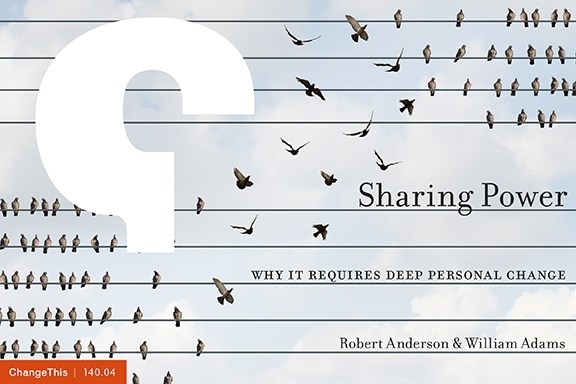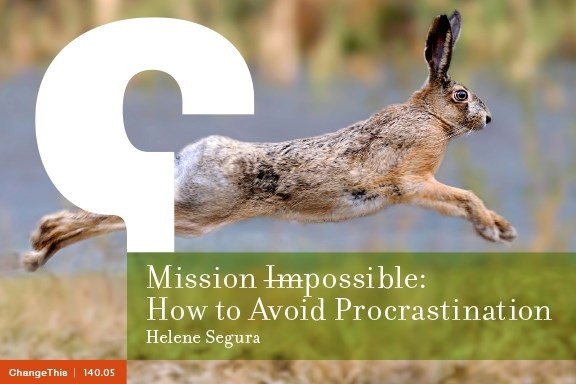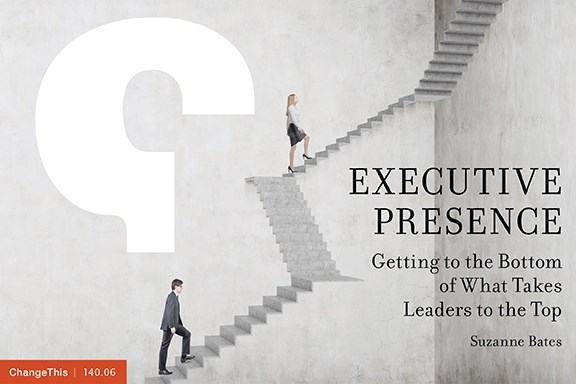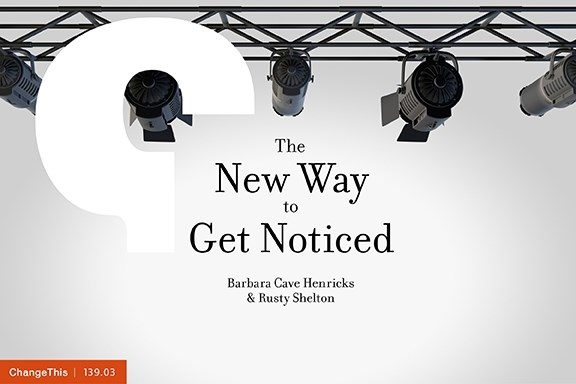ChangeThis RSS
"Sharing power always means that someone has to let go of control, and
someone has to accept more responsibility. Power is a major variable
around which our self-world relationship is formed. Some people maintain
a sense of personal safety and worth by having power; others establish
their identity by giving their power in exchange for protection and
belonging. Our relationship with power is a big part of how we create
our sense of identity.
Our approaches to change are far too casual about both asking managers
to let go of control and assuming that others will want increased
responsibility. When we redistribute power, we ask people to reconstruct
themselves—and that requires deep personal change."
Continue reading
"According to psychologists, procrastination is the act of wanting to feel good now. Basically, procrastination is the adult version of a three-year-old's 'I don't wanna!" tantrum.
Procrastination can make life miserable. If we put off projects, phone calls, emails, or whatever the task may be, we end up working at breakneck pace in order to complete it at the eleventh hour. It's unnecessary stress that we bring upon ourselves. ...
The research shows that overcoming procrastination comes down to thought control and self-regulation. It's all about mind management. Realizing that you're dragging your feet is the first key. Once this realization occurs, you're ready to play some strategic mind games with yourself."
Continue reading
"Executive presence has long been a catch-all phrase. When you ask people to define it, they often answer, "I'm not sure, but I know it when I see it." When pressed they might say it's body language, gravitas, charisma, or presentation skill. Countless books, articles, and TED talks reinforce this idea. All you need to do is walk on stage like you belong there, open up your gestures, and command the room.
Yet it seems like there's more. And there is."
Continue reading
"In a sense, the new media environment feels like the Wild West. On television, many of today's highest rated programs are reality-based and feature families who do things like procreate excessively or become famous when their patriarch represents OJ Simpson in court. Twitter helped Paris Hilton become a household name after a sex tape first put her in the public eye. And what about the concept of going viral? Few of us can forget the moment in 2015 when frenzy erupted over whether a particular dress was blue and black or white and gold, a "story" that temporarily pushed aside substantive news. It's easy to be cynical, we get it.
On the flip side, this new environment has given us access we wouldn't otherwise have to many of the world's most influential minds. From Reddit's 'Ask Me Anything' to the TED talks featured on YouTube, new media tools have helped create and given us access to an unprecedented number of experts. Further, they have whetted our collective appetite for more.
Not only is there opportunity to create content and display it on the virtual billboard that exists online, but there is a chance to create a strategy for capturing even more value from your messages."
Continue reading
"I know way too many senior people who think they're great leaders because they read lots of leadership books, or who think they're staying abreast of the changes in their industry because they're reading about those changes.
Real learning is almost always at least somewhat uncomfortable. It's challenging. It's figuring out how to operate in new ways; questioning your assumptions; putting new ideas into practice. Real learning takes you out of the tried-and-true, and into that murky, disturbing land of I'm-not-very-good-at-this.
And, I submit to you, that kind of learning is central to our success today."
Continue reading











